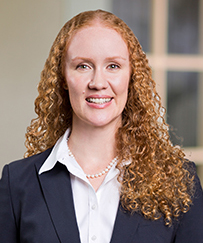Not many founders of a new business consider, at the time the new business is founded, the potential U.S. federal income tax consequences to them should the new business fail. The type of business entity formed, and the treatment of that entity for U.S. federal tax purposes as either a corporation or a pass-through entity, can have a material U.S.
Commercial And Regulatory Law Committee
Committees
The Labor and Employment Committee has continued to remain at the forefront of the intersection of labor and employment issues and bankruptcy in its continuing effort to keep its members well-informed as they navigate these issues.
While the bankruptcy process may bring a new beginning, the Bankruptcy Code provides — and some say rightfully so — debtors with much less protection against tax claims than other types of claims for public policy and much-applauded revenue reasons.
Despite lingering questions concerning the scope of a bankruptcy court’s jurisdiction in the wake of Supreme Court decisions in Stern v. Marshall[1] and Wellness Int’l Network, Ltd., et al v.
The Third Circuit recently became the first U.S. Court of Appeals to rule that a pension plan established by a church agency does not qualify as an exempt “church plan” under subsection 4(b)(2) of the Employment Retirement Income Security Act (ERISA).
The Bankruptcy Taxation Committee had a particularly active 2015, and we are headed into 2016 with a lot of momentum. Understanding how tax issues affect the bankruptcy process is key to any case. Join our committee to further your knowledge and appreciation of tax issues in bankruptcy.
This year has seen many significant developments affecting the intersection of labor and employment issues and bankruptcy. The Labor and Employment Committee endeavors to remain at the forefront of this highly specialized and complex subset of bankruptcy laws in an effort to keep its members well-informed as they navigate these issues.
Benjamin Franklin once famously said, “Nothing is certain except death and taxes.” The U.S. federal income tax rules certainly apply to both profitable companies and troubled companies to ensure that no party is left out of the fun. These tax consequences can have a material impact on both the current and future health of a debtor corporation, as well as on the type and amount of assets of the debtor corporation available to both creditors and purchasers of assets of the debtor corporation.
One of the most attractive benefits of a bankruptcy filing is the potential discharge of indebtedness.[1] However, the bankruptcy discharge may have significant tax consequences for the debtor. Generally, a taxpayer must include, in its gross income, any amount of debt that is discharged, or cancelled, other than by payment.[2]
26 U.S.C. § 6901 and Internal Revenue Code § 6901 enable the IRS Commissioner to collect deficient or underpaid corporate income taxes from a transferee of property. In the recently decided case of Slone v. Commissioner,[1] the appeals court was asked to decide whether the tax court had made an appropriate decision by holding that
Co-Chair
Markowitz, Ringel, Trusty & Hartog, PA
Ft. Lauderdale, FL
(954) 767-0030
Co-Chair
Dentons Bingham Greenebaum
Louisville, KY
(502) 587-3719
Communications Manager
U.S. Bankruptcy Court for the District of Arizona, Phoenix Division
Phoenix, AZ
(602) 682-4144
Education Director
White and Williams LLP
Cranford, NJ
(212) 868-4837
Education Director
Simmons Legal PLLC
Dallas, TX
(214) 643-6192
Membership Relations Director
Womble Bond Dickinson (US) LLP
Wilmington, DE
(302) 252-4326
Newsletter Editor
Quinn Emanuel Urquhart & Sullivan, LLP
Houston, TX
(713) 221-7000
Special Projects Leader
Lessne Law
Fort Lauderdale, FL
(954) 372-5759


















